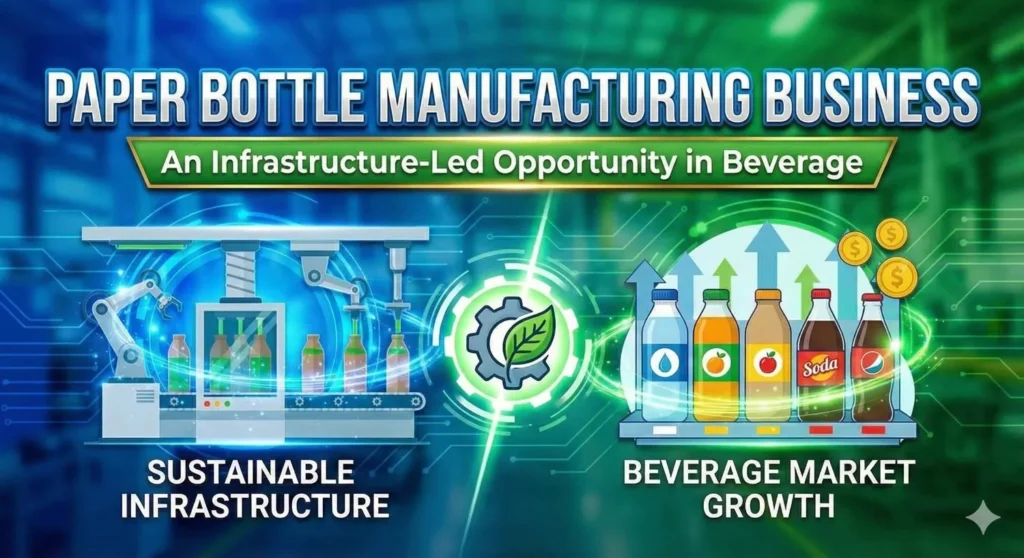
The beauty and wellness industry is growing rapidly across the globe. In India too, rising awareness around skincare, grooming, and wellness has opened many new opportunities. Among them, Cosmetics & Perfumery Projects are gaining high popularity. These projects offer great potential for entrepreneurs interested in launching natural, herbal, or luxury beauty products. From essential oil extraction to perfume blending and cosmetic formulations, the sector promises steady growth and high profit margins.
Contents
- 1 Cosmetics & Perfumery Projects | Essential Oil Business
- 1.1 Types of Cosmetics & Perfumery Products You Can Make
- 1.2 Why Invest in Cosmetics & Perfumery Projects?
- 1.3 Machinery and Equipment Required
- 1.4 Raw Materials and Ingredients
- 1.5 Investment and Profit Potential
- 1.6 Licensing and Certifications
- 1.7 Target Markets and Sales Channels
- 1.8 Packaging and Branding
- 1.9 Marketing and Promotion Strategies
- 1.10 Challenges and How to Overcome Them
- 1.11 Conclusion
Cosmetics & Perfumery Projects | Essential Oil Business
The global shift toward natural and organic products has significantly increased demand for plant-based cosmetics and fragrances. As a result, setting up Cosmetics & Perfumery Projects is now a profitable and sustainable business option. Moreover, India’s rich biodiversity and traditional knowledge of Ayurveda give it an edge in essential oil and herbal cosmetics production. With rising exports, e-commerce platforms, and eco-conscious consumers, entrepreneurs can now build high-impact brands in this space.
See Also :Start Sugarcane Juice Preservation & Bottling Plant
Types of Cosmetics & Perfumery Products You Can Make
There is a wide range of products that can be manufactured under Cosmetics & Perfumery Projects. These include:
-
Essential oils (lavender, eucalyptus, peppermint, tea tree, lemongrass)
-
Natural perfumes and attars
-
Facial creams and moisturizers
-
Herbal shampoos and conditioners
-
Lip balms, body butters, and scrubs
-
Aromatherapy oils and massage blends
-
Soaps, bath bombs, and bath salts
-
Serums and anti-aging creams
Moreover, you can choose to focus on a niche such as anti-acne, skin-brightening, baby care, or men’s grooming.
Why Invest in Cosmetics & Perfumery Projects?
There are multiple reasons to consider investing in this sector:
-
Increased demand for organic and cruelty-free products
-
Low-cost raw materials and herbs available in India
-
High export potential for essential oils and herbal cosmetics
-
Government support through MSME and Startup India schemes
-
Growing online beauty marketplace and D2C (direct-to-consumer) models
Moreover, cosmetic products offer high repeat purchases and excellent margins when combined with smart branding.
Machinery and Equipment Required
The required setup depends on the product range you choose. A typical Cosmetics & Perfumery Projects unit may include:
-
Steam distillation unit (for essential oil extraction)
-
Mixing and blending tanks
-
Filling and crimping machines (for perfumes and oils)
-
Cream and lotion mixer
-
Tube or bottle filling machines
-
Labeling and capping units
-
Water treatment system (for cosmetic formulations)
-
Cold process soap-making machine (optional)
Moreover, a small testing lab is essential for quality control, formulation testing, and shelf-life studies.
Raw Materials and Ingredients
Quality raw materials define the effectiveness of your products. Common ingredients include:
-
Carrier oils (coconut, almond, jojoba, sesame)
-
Essential oils (lavender, rosemary, clove, eucalyptus)
-
Natural waxes and butters (shea, cocoa, beeswax)
-
Herbal extracts (neem, tulsi, aloe vera, rose)
-
Natural colorants and fragrances
-
Base creams, soap noodles, and gel bases
-
Packaging materials (glass bottles, jars, tubes)
Moreover, sourcing organic and certified ingredients boosts customer trust and adds value to your brand.
Investment and Profit Potential
Setting up Cosmetics & Perfumery Projects can be flexible in terms of budget. Here’s a rough idea:
| Setup Type | Investment Range (INR) | Monthly Profit Potential (INR) |
|---|---|---|
| Small Scale | ?5 – ?10 lakhs | ?30,000 – ?1 lakh |
| Medium Scale | ?15 – ?30 lakhs | ?1 – ?2.5 lakhs |
| Large Scale | ?50 lakhs – ?1 crore+ | ?3 – ?7 lakhs+ |
Moreover, the profit margin on cosmetics and perfumes can be as high as 50–70%, especially with strong branding and loyal customer base.
Licensing and Certifications
To legally operate and sell cosmetic or perfumery products, you will need:
-
Cosmetic manufacturing license under the Drugs and Cosmetics Act
-
FSSAI license (for edible essential oils or lip balms)
-
GST registration
-
MSME/Udyam registration
-
Trademark registration for branding
-
ISO and GMP certification (optional but preferred)
Moreover, obtaining cruelty-free, vegan, or organic certifications helps attract premium customers.
Target Markets and Sales Channels
The customer base for Cosmetics & Perfumery Projects includes:
-
Beauty salons and wellness spas
-
Ayurvedic and natural product stores
-
Modern trade outlets and supermarkets
-
Online buyers (Amazon, Flipkart, Nykaa, your own website)
-
Exporters to Europe, UAE, and Southeast Asia
-
Gift and lifestyle stores
-
Hotels and wellness retreats (bulk orders)
Moreover, offering sample kits, custom gifting, and combo packs can boost repeat business and increase order value.
Packaging and Branding
Your packaging should match your brand’s image. Eco-friendly, minimal, or luxury designs all work depending on the market. Choose:
-
Glass bottles for essential oils and perfumes
-
Recyclable tubes or jars for creams
-
Wooden boxes or tin cases for premium gift sets
-
Kraft paper wraps for soaps or bath bombs
Use clear labels mentioning:
-
Ingredients
-
Usage directions
-
Manufacturing and expiry dates
-
Certifications (vegan, organic, cruelty-free)
Moreover, packaging plays a vital role in influencing customer perception and shelf appeal.
Marketing and Promotion Strategies
To grow your Cosmetics & Perfumery Projects, focus on:
-
Social media marketing (Instagram, YouTube, Pinterest)
-
Influencer partnerships in the beauty and wellness niche
-
Email marketing and customer loyalty programs
-
Blog content and skincare education
-
Selling on e-commerce platforms and marketplaces
-
Participating in beauty expos and wellness fairs
Moreover, customer testimonials, before-after photos, and ingredient stories can create trust and emotional connection with your brand.
Challenges and How to Overcome Them
Some common challenges in this sector include:
-
Formulation stability and shelf life
-
Building trust in a competitive market
-
Raw material price fluctuation
-
Compliance with cosmetic regulations
Solutions:
-
Work with trained cosmetic chemists or certified formulators
-
Start with a small product range and scale gradually
-
Use batch tracking and quality control systems
-
Educate your audience on the benefits and usage of natural products
Moreover, transparency and consistent branding help build long-term loyalty.
Read Also :How to Manufacture Fruit Juice
Conclusion
Cosmetics & Perfumery Projects offer an exciting opportunity to enter the booming beauty and wellness industry. With rising demand for natural and herbal products, this segment allows you to build a scalable, eco-conscious, and premium brand. Moreover, whether you choose essential oils, perfumes, or skincare products, the combination of quality, creativity, and digital marketing can set your business apart. Start small, focus on quality, and grow your range over time to create a lasting brand in the cosmetics market.





